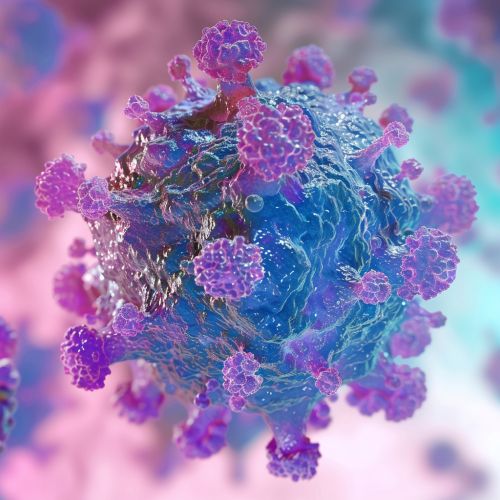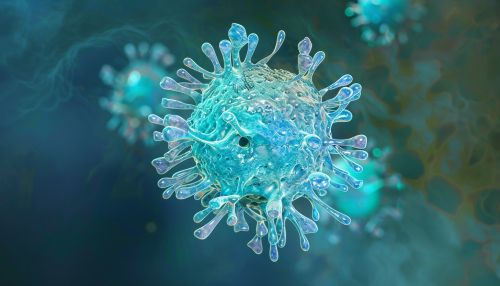B cell
Introduction
B cells, also known as B lymphocytes, are a type of white blood cell that plays a crucial role in the immune system. They are responsible for producing antibodies, which are proteins that can recognize and neutralize foreign substances such as bacteria and viruses. B cells are a key component of the adaptive immune response, which provides long-lasting protection against specific pathogens.


Development and Maturation
B cells originate from hematopoietic stem cells in the bone marrow. These stem cells differentiate into early B cell precursors, which then undergo a series of maturation steps to become mature B cells. This process involves several stages, including pro-B, pre-B, immature B, and mature B cell stages. Each stage is characterized by specific changes in gene expression and cell surface markers.
Activation
B cells become activated when they encounter an antigen that matches their specific B cell receptor (BCR). This interaction triggers a series of intracellular signaling events that lead to B cell activation. Activated B cells then undergo clonal expansion, a process in which they rapidly divide and differentiate into plasma cells and memory B cells.
Function
The primary function of B cells is to produce antibodies. Each B cell is capable of producing a unique antibody that recognizes a specific antigen. When a B cell encounters its specific antigen, it becomes activated and differentiates into a plasma cell. Plasma cells are specialized cells that produce large amounts of antibody.
In addition to antibody production, B cells also have other functions in the immune response. They can present antigens to T cells, a process that is crucial for the activation of T cells. B cells also produce cytokines, which are signaling molecules that regulate the immune response.
B Cell Subsets
There are several subsets of B cells, each with distinct functions. These include follicular B cells, marginal zone B cells, B1 cells, and regulatory B cells. Follicular B cells are the most common type of B cell and are primarily involved in antibody production. Marginal zone B cells are located in the spleen and are important for responses to blood-borne pathogens. B1 cells are a unique subset of B cells that are involved in the early immune response to pathogens. Regulatory B cells are a recently discovered subset of B cells that have immunosuppressive functions.
Role in Disease
B cells play a role in many diseases, including autoimmune diseases, allergies, and cancer. In autoimmune diseases, B cells produce antibodies against the body's own tissues, leading to tissue damage. In allergies, B cells produce antibodies that recognize harmless substances, leading to an overactive immune response. In some types of cancer, B cells can become malignant and form a type of cancer called B cell lymphoma.
Conclusion
B cells are a crucial component of the immune system, responsible for producing antibodies and presenting antigens to T cells. They play a key role in the adaptive immune response, providing long-lasting protection against specific pathogens. Understanding the biology of B cells is essential for developing new treatments for diseases in which B cells play a role.
